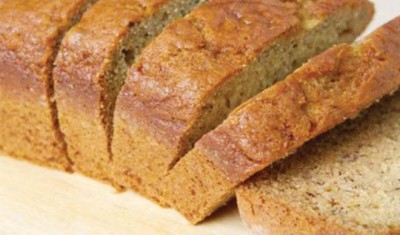
The strike action embarked upon by the Association of Master Bakers and Caterers of Nigeria (AMBCN) and Arewa Master Bakers Forum last week caused bread to disappear from the shelves in several urban centres. The bakers said they were protesting against sharp increases in the price of ingredients used for baking bread. This is due to the sharp depreciation in the naira’s value against foreign currencies since most of the ingredients in question such as wheat, sugar, baking powder and yeast are imported. Government should take serious note of the bakers’ strike because bread is the major food for the urban poor in all our cities and towns.
Some 8000 bakers closed down their bakeries in Kano State alone. The bakers’ Public Relations Officer in the state, Malam Kabiru Hassan, said his members embarked on the strike due to the increase in the price of flour and other bread ingredients. He said, “I can confirm to you that there is no single bread for sale right now in Kano. We were forced into this strike because the price of flour has skyrocketed in the market.”
The importance of bread to the urban diet cannot be over emphasized as it is the most versatile food for the urban poor. It is pre-cooked, it is relatively cheap, it is easy to transport, it can be kept for many days without going bad and it is highly combinable with other foods including rice, butter, eggs, fish, meat etc. This was why increase in bread prices has caused riots in many countries around the world. Bread prices were the root cause of the French Revolution of 1789.
The big problem we have is that this country relies on 3.7million tones of imported wheat annually to get flour, the main bread ingredient. The same applies to sugar, another major bread ingredient. With the recent collapse in the naira’s value, a crisis is almost inevitable. Unfortunately, wheat is essentially a temperate zone crop. Even though we have been producing wheat locally for decades in rather small quantities, its many requirements such as low temperature, a lot of water, a lot of fertilizer and careful tending make it a difficult customer indeed. Still, the Babangida administration tried in the 1990s to reduce wheat imports through the Accelerated Wheat Production Program which offered subsidies to states based on the number of tones of wheat they produced. The program foundered after a short while.
In recent years the Lake Chad Basin Research Institute embarked on a major wheat production and improvement project. The institute said it had two new varieties of wheat that could yield six tons per hectare compared to the one ton per hectare of the old wheat variety. Its Executive Director Dr Oluwasina Olabanji said the varieties were suitable for both wet and dry season farming. He also said Mambilla Plateau in Taraba State, Obudu in Cross River State and the Jos Plateau would be used for the growing of rain-fed wheat while ten other states were targeted for irrigated wheat production. The Lake Chad wheat project was however disrupted by the Boko Haram insurgency.
From Babangida through Abacha and Obasanjo regimes, the Federal Government also tried another tack by developing alternatives to wheat. The Federal Institute of Industrial Research, Oshodi led the way and produced prototypes of cassava bread. In 2004 the Obasanjo regime adopted the use of 10 percent cassava in bread making and legislation was even contemplated the following year to enforce it. This was later reduced to 5 percent when it was said there was no enough cassava in Nigeria. President Jonathan’s regime too directed in 2012 that only cassava bread should be served in the State House. However, the Nigerian public never liked cassava bread and prefers to eat wheat bread. Going forward, government should intensify efforts towards both local wheat production as well as the search for suitable alternatives to wheat bread.
END

Be the first to comment